Faculty Achievements
Melissa Gordon ’11
Assistant professor of chemical and biomolecular engineering
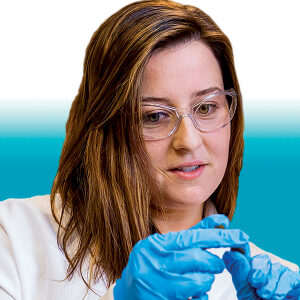 Awarded a two–year $55,000 grant from the American Chemical Society (ACS) to provide research opportunities for students. The Undergraduate New Investigator grant will primarily provide several students with a mentored, hands–on research opportunity at Lafayette focused on developing and testing stimuli–responsive polymers.
Awarded a two–year $55,000 grant from the American Chemical Society (ACS) to provide research opportunities for students. The Undergraduate New Investigator grant will primarily provide several students with a mentored, hands–on research opportunity at Lafayette focused on developing and testing stimuli–responsive polymers.
“The grant will also generously support the chemicals and supplies needed for this research as well as partially fund travel to scientific meetings. The research I did as a student at Lafayette greatly influenced my career path, and this funding will help me pay it forward to others.”
Katherine Groo
Assistant professor of film and media studies
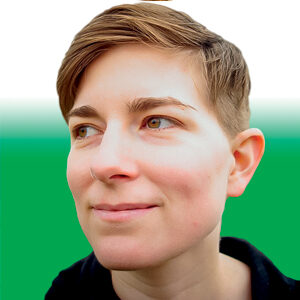 Awarded the Humboldt Fellowship for Experienced Researchers by the Alexander von Humboldt Foundation. With the support of the fellowship, which is one of the most prestigious academic prizes in Europe, Groo will spend a year conducting research at the Institute of Musicology and Media at Humboldt University in Berlin. The experience will culminate in the completion of Groo’s second book, tentatively titled Images at the End of the World: Historicity and Mourning in the 21st Century.
Awarded the Humboldt Fellowship for Experienced Researchers by the Alexander von Humboldt Foundation. With the support of the fellowship, which is one of the most prestigious academic prizes in Europe, Groo will spend a year conducting research at the Institute of Musicology and Media at Humboldt University in Berlin. The experience will culminate in the completion of Groo’s second book, tentatively titled Images at the End of the World: Historicity and Mourning in the 21st Century.
“I feel very lucky because every award is competitive, and there are so many worthy research projects out there. I’m grateful that I will have a full year to work on this book, and I look forward to immersing myself in the media studies research community in Berlin, beginning in June 2021.”
Kira Lawrence
John H. Markle Professor of Geology and department head
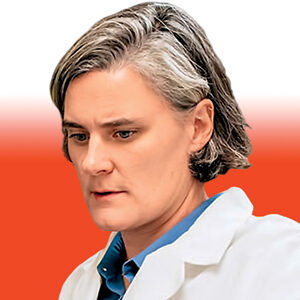 Awarded an Eagleton Science and Politics Fellowship for 2020–2021. The program enables Ph.D.-level scientists the opportunity to share their expertise with New Jersey state policymakers and government officials to advance state initiatives. Lawrence, a climate scientist and New Jersey resident, is working to help inform climate–related policy within the Division of Clean Energy at the state’s Board of Public Utilities.
Awarded an Eagleton Science and Politics Fellowship for 2020–2021. The program enables Ph.D.-level scientists the opportunity to share their expertise with New Jersey state policymakers and government officials to advance state initiatives. Lawrence, a climate scientist and New Jersey resident, is working to help inform climate–related policy within the Division of Clean Energy at the state’s Board of Public Utilities.
“In the years to come, there will be a huge demand for people who understand renewable energy and energy policy, and who have the skills to help implement clean-energy transitions. Because of our unique identity as a small liberal arts college with a robust engineering division, there is a real opportunity for Lafayette students to be leaders in these fields, and this fellowship will enable me to better prepare our students to embrace those opportunities.”
Khadijah Mitchell
Peter C.S. d’Aubermont, M.D., ’73 Scholar of Health and Life Sciences, and assistant professor of biology
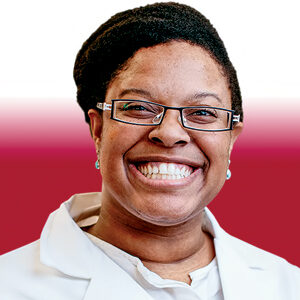 Selected to co-lead a Pennsylvania Department of Health (PADOH) task force committee aimed at helping to mitigate the impact of COVID-19 among racial and ethnic minority groups. The Health Equity Response Team’s charge is to create evidence–based strategies and recommendations that can mitigate the effects of COVID-19
Selected to co-lead a Pennsylvania Department of Health (PADOH) task force committee aimed at helping to mitigate the impact of COVID-19 among racial and ethnic minority groups. The Health Equity Response Team’s charge is to create evidence–based strategies and recommendations that can mitigate the effects of COVID-19
in marginalized populations.
“We are working to try to reduce health disparities and achieve health equity—everyone needs to have their health needs met and to be as healthy as possible. It’s working to empower communities with education and the tools they need to protect themselves. It’s challenging but very rewarding.”
Polly Piergiovanni
Professor of chemical and biomolecular engineering
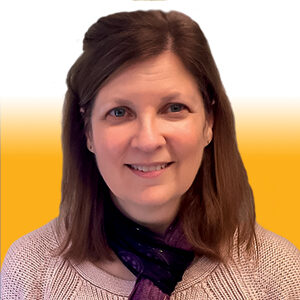 Named the Air Products/Ghasemi Chair in Engineering for Interdisciplinary Teaching. The position was endowed in 2017 as a result of the Engineering and Liberal Arts Challenge from the Live Connected, Lead Change campaign when an anonymous donor challenged the community to support the engineering division. The matching funds are enhancing the Acopian Engineering Center by providing space for the faculty chair and interdisciplinary student-faculty engagement and interaction.
Named the Air Products/Ghasemi Chair in Engineering for Interdisciplinary Teaching. The position was endowed in 2017 as a result of the Engineering and Liberal Arts Challenge from the Live Connected, Lead Change campaign when an anonymous donor challenged the community to support the engineering division. The matching funds are enhancing the Acopian Engineering Center by providing space for the faculty chair and interdisciplinary student-faculty engagement and interaction.
“Since my teaching involves predominantly hands-on concepts, the funds from this endowment will allow me to enhance instruction by purchasing technology that supports experiential learning.”
Brooks Thomas
Assistant professor of physics
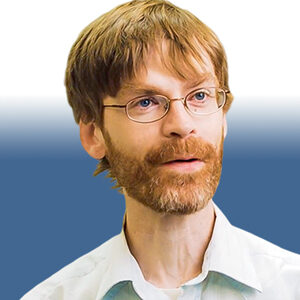 Awarded a three-year $135,000 National Science Foundation (NSF) grant that will help fund Thomas’ work as a theoretical particle physicist whose primary focus is on identifying the nature and properties of the as-yet mysterious dark matter in our universe. It is Thomas’ second NSF grant; he received a three–year $120,000 award in 2017.
Awarded a three-year $135,000 National Science Foundation (NSF) grant that will help fund Thomas’ work as a theoretical particle physicist whose primary focus is on identifying the nature and properties of the as-yet mysterious dark matter in our universe. It is Thomas’ second NSF grant; he received a three–year $120,000 award in 2017.
“I’m particularly excited about the possibility that we might be able to learn things about the fundamental properties of the dark matter by studying the way in which it is spatially distributed throughout our universe,” he says. “At a time in which budgets are generally shrinking, it is a wonderful affirmation of my work.”